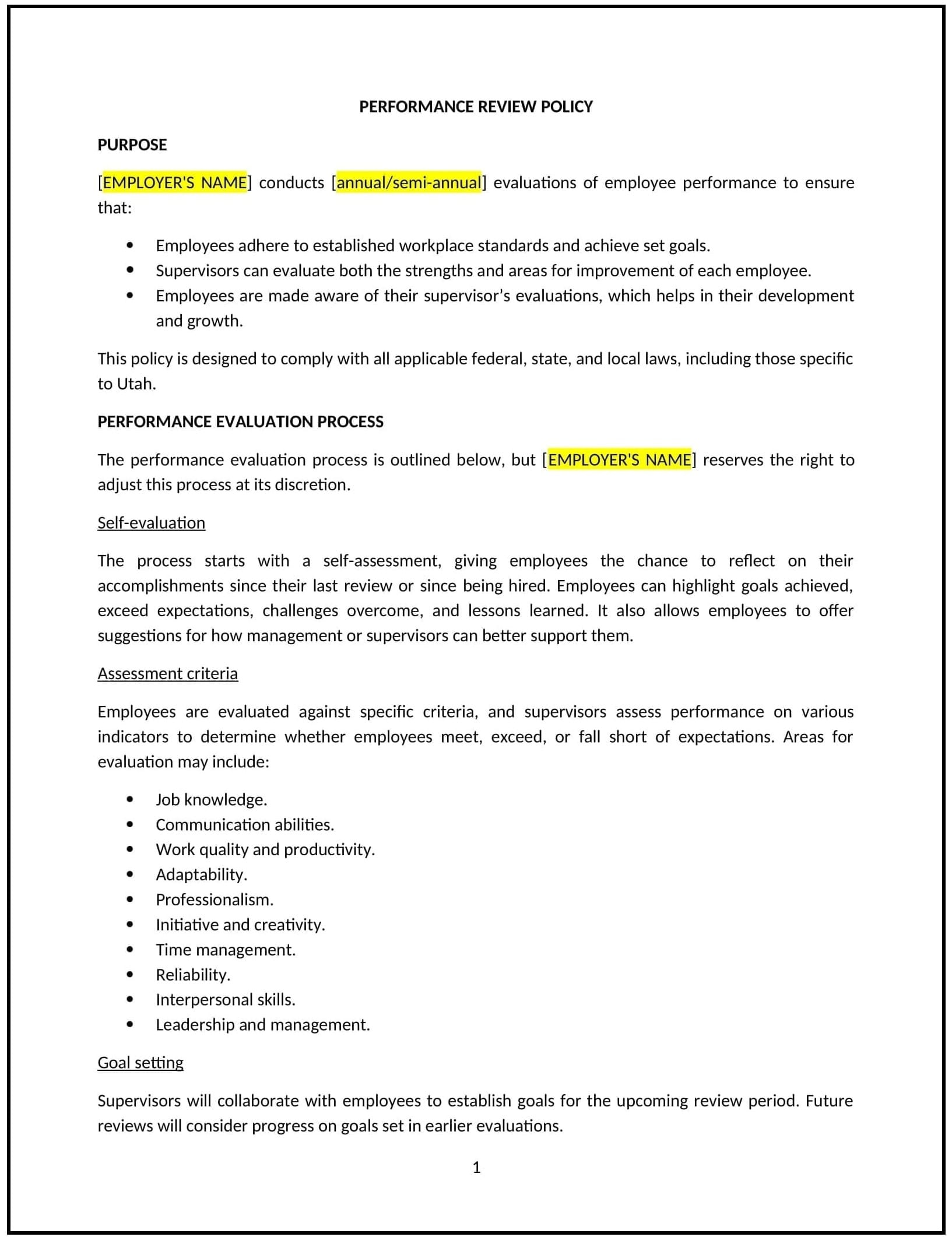Got contracts to review? While you're here for policies, let Cobrief make contract review effortless—start your free review now.

Customize this template for free
Performance review policy (Utah)
This performance review policy is designed to help Utah businesses establish guidelines for evaluating employee performance. It outlines procedures for conducting reviews, setting goals, and providing feedback to support employee development and organizational success.
By adopting this policy, businesses can improve employee performance, align individual goals with business objectives, and align with general best practices for performance management.
How to use this performance review policy (Utah)
- Define review frequency: Specify how often performance reviews will be conducted, such as annually, biannually, or quarterly.
- Establish evaluation criteria: Outline the factors used to assess performance, such as job skills, productivity, and teamwork.
- Set goals: Work with employees to set measurable performance goals aligned with business objectives.
- Provide feedback: Offer constructive feedback during reviews, highlighting strengths and areas for improvement.
- Document reviews: Maintain records of performance reviews, goals, and feedback for accountability and future reference.
- Train managers: Educate supervisors on conducting fair and effective performance reviews.
- Review and update: Assess the policy annually to ensure it aligns with evolving business needs and performance standards.
Benefits of using this performance review policy (Utah)
This policy offers several advantages for Utah businesses:
- Improves performance: Provides employees with clear feedback and goals to enhance their performance.
- Aligns goals: Ensures individual performance goals align with business objectives.
- Supports development: Identifies training needs and opportunities for employee growth.
- Enhances communication: Encourages open dialogue between employees and managers.
- Reduces legal risks: Provides documentation to support performance-related decisions, such as promotions or terminations.
Tips for using this performance review policy (Utah)
- Communicate the policy: Share the policy with employees and include it in the employee handbook.
- Provide training: Educate managers on conducting fair and effective performance reviews.
- Monitor compliance: Regularly review performance review processes to ensure adherence to the policy.
- Address issues promptly: Take corrective action if performance reviews are inconsistent or unfair.
- Update regularly: Assess the policy annually to ensure it aligns with evolving business needs and performance standards.